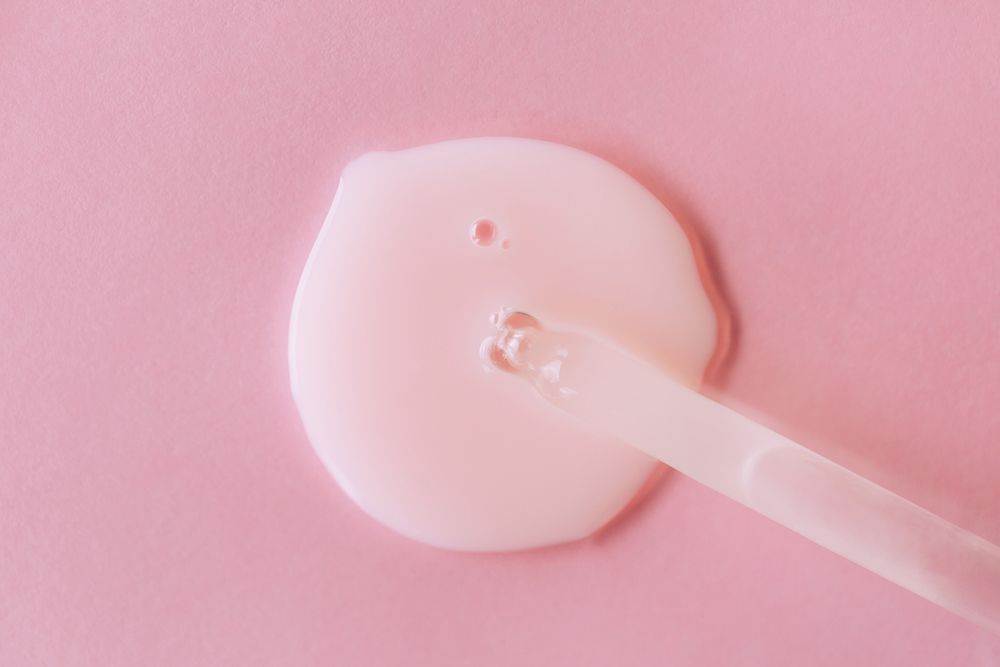Emu oil is a popular Australian beauty export that intrigues beauty consumers across the globe. Aboriginal Australians began using this thick cure-all almost 40,000 years ago. For centuries, this oil fixture has been utilized for everything from moisturizing extremely dry skin to helping heal wounds.
Meet the Expert
- Dr. Hadley King, MD, FAAD, is a New York City-based dermatologist.
- Dr. Erum Ilyas, MD, MBE, FAAD, is a board-certified dermatologist based in King of Prussia, Pennsylvania.
But does this ancient solution hold up? Is it still a skincare panacea in the 21st century? To learn more about what benefits this ancient beauty treatment can offer modern consumers, we spoke with Dr. Hadley King, MD, FAAD, a New York City-based dermatologist, and Dr. Erum Ilyas, MD, MBE, FAAD, a board-certified dermatologist and the founder of Montgomery Dermatology in King of Prussia, Pennsylvania.
Read on for what they had to say.
Emu Oil
Type of Ingredient: Oil
Main Benefits: Helps prevent water loss from the skin, increasing hydration.
Who should use it: Emu oil is safe for all skin types, but is most beneficial to individuals with dry, inflamed skin, according to King.
How often can you use it: As often as necessary.
Works well with: Other oils and moisturizers.
Don’t use with: No serious adverse reactions have been reported with the use of emu oil.
What Is Emu Oil?
Emu oil is derived from the fat of an emu bird. Also known as Dromaius novaehallandiae, the emu is a flightless bird species that is indigenous to Australia. The fat is removed from the back of the bird and then goes through a refining process that removes excess toxins. It’s important to note that because of this, emu oil is not cruelty-free.
Elyas says that emu oil is rich in fats, “particularly long-chained triglyceride esters, such as oleic acid and linoleic acid. It also contains saturated fatty acids like palmitic acid.” It contains 70 percent unsaturated fatty acids (mainly omega-9), 20 percent linoleic acid (omega-6), and 1-2 percent linolenic acid (omega-3), adds King.
When purchasing as a standalone product, be sure to look out for 100 percent pure emu oil that does not contain unwanted containments. Emu oil can also be found as an ingredient in various moisturizing creams and oils.
What Are the Benefits of Emu Oil?
- Hydrates skin : Emu oil is a thick occlusive, which means it can help prevent water loss, keeping skin happily hydrated.
- Helps heal wounds: Ilyas notes that wound healing is one of the various uses of emu oil.
- Anti-inflammatory: According to King, emu oil has been demonstrated to have potent anti-inflammatory activity associated with decreased levels of pro-inflammatory cytokines.
- Has antioxidative properties: Emu oil contains a rich supply of carotenoids, flavones, polyphenols, tocopherol, and phospholipids, which, according to King, gives it rich antioxidative properties.
- Offers arthritis relief: Arthritis is a disease associated with inflammation. The anti-inflammatory aspects of emu oil can potentially offer some minor relief.
- Targets skin aging: Emu oil can help slow down wrinkle formation and other aspects of the aging process. One study found that the use of emu oil helped decrease wrinkles and dark circles around the eyes of the female participants.
- Acts as a natural insect repellent: Emu oil contains different terpenes, a class of molecules that have been found to have some degree of insect repelling properties.
- Available over-the-counter: Unlike some super skincare ingredients, emu oil products are available in most beauty and drugstores.
What Are the Side Effects of Emu Oil?
Studies have shown emu oil to have a relatively neutral effect on the skin. According to King, no serious adverse reactions have been reported with the use of emu oil. It’s relatively safe for topical use in humans.
That doesn’t mean emu oil is right for everyone. Due to its thick consistency, emu oil could potentially clog the pores of certain skin types. Another concern to note involves the production process—emu oil is derived from deceased emu animals (often killed for their meat as well). Individuals who have vegan lifestyles or those who stay away from animal products will likely want to avoid this one.
How to Use Emu Oil
For skincare benefits, emu oil should be applied topically. When taken orally the benefits will primarily be digestive, and not necessarily skincare related.
Emu oil can be incorporated into the moisturizing portion of a skincare or body care regimen. You should use emu oil however often you would normally moisturize. Emu oil can be layered under or on top of your go-to moisturizer, and it can be mixed together with other oils or into creams and lotions.
The Best Products With Emu Oil
:max_bytes(150000):strip_icc()/instanaturalemuoilcopy-6c4093a88672438c8d8c3772666b8760.jpg)
:max_bytes(150000):strip_icc()/emuoil2-b7047eab5a8a4ba9a51eecea1f4ff0c2.jpg)
:max_bytes(150000):strip_icc()/blue-emu-c6051d62e5da4fc49cb0c2f48887ff30.jpg)
:max_bytes(150000):strip_icc()/ScreenShot2021-09-01at4.23.16PM-cb85dadd574c41e8b53fc452190c9276.png)
:max_bytes(150000):strip_icc()/oil_control_emulsion_center_1-389b804a8a764b7ca070f3313348bc9b.jpg)
:max_bytes(150000):strip_icc()/ScreenShot2021-09-01at4.30.49PM-ff139c8ab55c4f1c9cf94b1c62eb61cd.png)
:max_bytes(150000):strip_icc()/ScreenShot2021-09-01at4.30.49PM-ff139c8ab55c4f1c9cf94b1c62eb61cd.png)
La Roche-Posay
Toleriane Fluide Oil Free Moisturizer
$30.00
This cult-followed product is popular for good reason: it hydrates and soothes sensitive skin, without leaving a heavy film or oil. Great for sensitive types.
FAQ
-
Is emu oil safe for sensitive skin?
Studies have shown emu oil to have a relatively neutral effect on the skin, meaning it’s safe for sensitive skin.
-
Is emu oil beneficial for dry skin?
Emu oil is a thick occlusive, meaning it can help prevent water loss, and keep skin very hydrated.
-
What are some other benefits of emu oil?
Emu oil has been shown to demonstrat both anti-inflammatory and antioxidant properties.
Dermatologists Say Madecassoside Is a Promising Ingredient for Sensitive Skin










